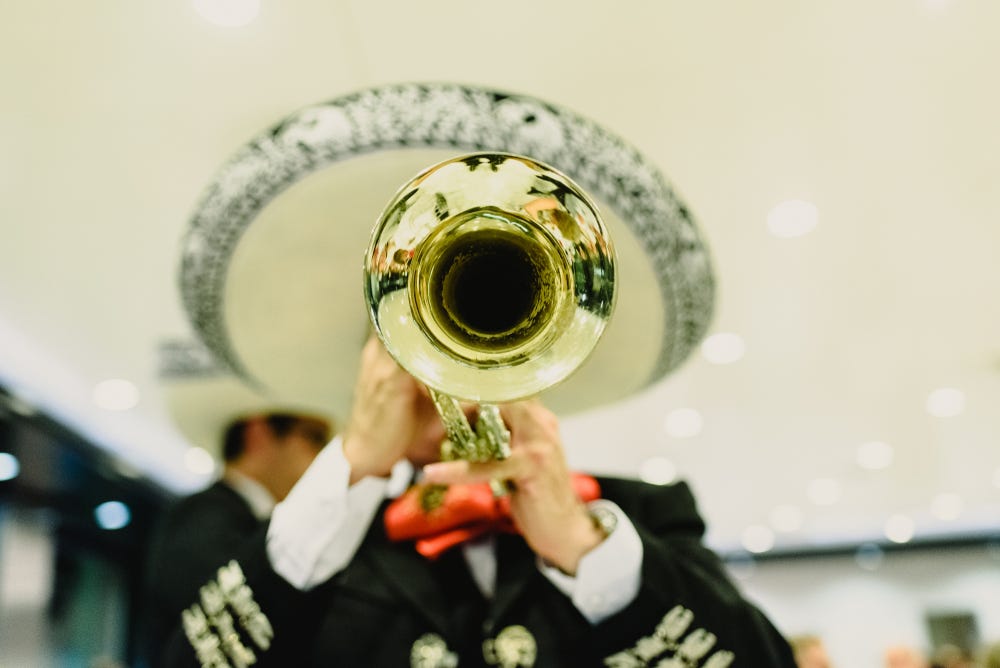Peru tackles money laundering
Peru’s legislation changes, Codere Online’s revenue rise, AMLO’s casino moves, Uruguay opening, Coljuegos appointment, Brazil progress +More
Hello and welcome to the first issue of the Los Ingresos+Mas weekly newsletter. Here you will find the latest news from the gambling industry in Latin America, from regulation and business moves to new investments in each country.
In this issue:
Peru amends gambling and betting laws to prevent money laundering.
Codere Online posts $37.6m in revenue for Q123.
In Mexico, AMLO threatens to revoke all licenses for the establishment of casinos issued in the last four years.
Opening of the New Hotel and Casino San Rafael slated for 2025.
Colombian government confirms the appointment of a new head of Coljuegos.
Brazil takes a preliminary step toward legalizing sports betting.
Peruvian legislation
The Peruvian Congress amends gambling and betting law to prevent money laundering and improve collection.
The plenary of Congress approved the report of the Trade and Foreign Affairs Committee, which includes some changes to the articles of the gambling law approved in July last year. The discussion has been relatively fluid and the views of the main players in the industry were sought, including the Ministry of Economy, the Superintendent of Banking, the Ministry of Commerce (which oversees gaming) and workers’ and employers’ associations. The regulation of the law, however, is still under discussion.
Among the changes that were approved were:
Incorporation of an article to ensure that foreign companies pay a principal tax on gambling. From now on, local and foreign companies providing gambling and betting services must pay a tax of 11.76% of their revenues.
The minimum financial guarantee for licensed operators is raised from $270,000 to $500,000 or 3% of gross annual revenue.
Foreign residents and tourists who register are allowed to play games with Peruvian operators (previously, the law allowed only nationals).
The domain allocation for licensed online gambling operators is extended beyond the single domain allowed under the previous legislation (bet.pe).
It is a criminal offense for online operators to operate without a license. Offenders could be sentenced to one to four years in prison.
Anonymity is removed to prevent money laundering and gambling.
The special guarantee requirement ($6.5k) for sportsbooks has been removed, requiring a one-time guarantee of $780k.
The restriction to operate betting premises at a minimum distance from churches and schools is removed for those rooms that already had their permits issued and valid.
The amended law has yet to be approved by the President of the Republic before it can enter into force.
** SPONSOR’S MESSAGE ** EveryMatrix delivers iGaming software, solutions, content and services for casino, sports betting, payments, and affiliate/agent management to 200+ global Tier-1 operators and newer brands. The platform is modular, scalable, and compliant, allowing operators to choose the optimal solution depending on their needs.
EveryMatrix empowers clients to unleash bold ideas and deliver outstanding player experiences in regulated markets.
Codere Online earnings
Codere Online posts $37.6m in revenue as of March 31, with Mexico the standout.
Codere Online’s revenues in the first quarter of the year increased by 57% compared to the same period in 2022, according to its recently published financial statements, which make special mention of the business performance in Mexico and in Spain.
Revenues grew by 75% in Mexico and 40% in Spain.
Thus, plans to continue expanding in Latin America are still underway: in April of this year, Codere obtained one of five operating licenses granted by the authorities of the Argentine province of Mendoza and this year they plan to start operating in the capital Buenos Aires.
According to Codere’s report, losses decreased by 87% from $10.1m in the first quarter to $1.3m in the same period this year.
The CEO of Codere Online, Aviv Sher, who will be replaced by Deborah Guivisdalsky from the second quarter on, explained that the strong revenue growth is the result of the strong investments they made before the World Cup, which has allowed them to expand their customer base substantially.
He added that cross-selling between sports betting and casino contributed more than half of gambling revenues (53%).
Following these results, Codere expects to generate up to $150m in net gaming revenue by the end of this year and by 2024, finally achieving “a positive cash flow,” said Oscar Iglesias, the company’s CFO.
Mexico casinos
AMLO threatens to revoke all licenses for the establishment of casinos issued in the last four years.
At the beginning of his term in 2019, the President of Mexico, Andrés Manuel López Obrador (AMLO), announced that his government would no longer grant operating licenses for casinos or gambling, including online gambling.
A month ago, AMLO stated that any licenses that had been granted by its government, that is during the last four years, would be canceled.
“Casinos should not be opened,” he said.
“We are not giving permits to open casinos, that started with [Vicente] Fox; when Santiago Creel was Secretary of State, and I will ask for a report from the Secretary of State (Lic. Adán Augusto López Hernández) and if there is a new license it will be canceled, the order is not to issue any licenses,” he added.
New Uruguay casino
New Hotel and Casino San Rafael set to open in 2025, says Mayor of Maldonado, Enrique Antía.
The technical team of Grupo Cipriani, which is in charge of the building of the Hotel and Casino San Rafael, presented the work plan that would end in 2025 to the Department of Urban Planning of the municipality of Maldonado.
“They will bite their tongue,” said Mayor Enrique Antía on that regard.
The excavations to establish the foundation of the structure have already begun, with a total investment of around $200m, which includes three residential buildings that will follow the hotel and will attract "tourists from all over the world", according to the mayor.
The former San Rafael Hotel, on the Lorenzo Batlle boulevard of Punta del Este, was demolished in 2019 to give way to the Cipriani Group project that, as planned, would be built in 59 months and will have 80 rooms and 268 parking spaces.
The casino already has a license for face-to-face gaming and its developers are applying for a license for online gaming and betting, something that does not yet exist in Uruguay.
Chilean notebook
Casinos made $59m in revenue in March, a 3.8% decrease over the same month in 2022.
Regulator report: According to the report of the gaming and casinos regulator (SCJ) of Chile, there was a contraction in the revenues of casinos, even though visits to these establishments grew by more than 400%. The explanation for this phenomenon is the inflationary process that the country is going through.
The superintendence also reported that casinos contributed $20.7m to the tax authorities in March, 0. 7% higher than in the same month of the previous year.
Colombia regulator
The Colombian government confirms Dr. Samuel Libos Ziga’s appointment as the new head of Coljuegos.
At the beginning of May, the Colombian government accepted the resignation of Roger Carrillo, president of the Empresa Industrial y Comercial del Estado Administradora del Monopolio Rentístico de los Juegos de Suerte y Azar (Coljuegos) and entrusted the position to Dr. Samuel Libos Zúñiga.
Carrillo, who had been in office for just over two months, is stepping down barely two days after the Conservative party, of which he was a member, severed its coalition with President Gustavo Petro.
Libos, for his part, is the current technical deputy director of the Subdirección de Política Fiscal del Ministerio de Hacienda and will direct Coljuegos “while the holder of the job is appointed and possessed without relinquishing the functions proper to the position he holds,” according to the decree that entrusts him.
In Colombia, the gambling industry is bigger than the textiles, clothing and footwear industries and in 2022 it had a turnover of $176m, 18% more than in 2021.
According to Coljuegos figures, the industry has paid more than $91m in taxes since 2018 and has created more than 150,000 direct jobs.
The proceeds of Coljuegos are mainly intended for the health sector.
Brazil sports betting
Brazil takes a preliminary step toward legalizing sports betting after 20 years of waiting.
A long wait: After 20 years, sports betting will be legal in Brazil, an important milestone for the country. President Luiz Inácio Lula da Silva officially adopted the provisional measure, and it was signed by the Ministers of Finance, Planning, Management, Health, Tourism and Sports.
Once Lula signs, the new legal arrangement will be official within 60 days (or 120 just in case of an extension). This move brings Brazil closer to establishing a regulated and legal sports-betting market.
To ensure the proper functioning of sports betting in Brazil, the provisional measure establishes that licensed operators must pay a tax of 16% on the gross revenues of the game, that a portion of the revenues is earmarked for public health initiatives and anti-fixing efforts of match results.
Moreover, 2.5% of the tax revenue will go to the National Public Security Fund, 1.6% to sports clubs and 10% to social security. The initiatives of the Ministries of Sports and Education will also receive their share, with 1% and 0. 8%, respectively.
In addition to the tax framework, players taking part in sports betting will be subject to an income tax of 30% on their winnings, with a cap of R$2,212 (approximately $435). These measures aim to generate current income for important sectors of society.
The regulation of sports betting in the country will be the responsibility of the Ministry of Finance, which will oversee the regulation of advertising and impose fines on offenders.
In addition, certain groups, such as those under 18 years of age, persons associated with sports organizations (including athletes) and employees of bookmakers, will be prohibited from betting.
For supervision, the Ministry will create a new secretariat called the Special Secretariat for Federal Revenue of Brazil, under the Ministry of Finance.
This entity will assess the compliance of operators with licensing conditions, ensuring that only qualified and responsible entities obtain licenses.
Argentina notebook
Where the game is headed in Argentina.
People's favorite game modes vary greatly. Country and socioeconomic position used to be major drivers of what and how was played in each area, but the income from online betting and gambling has begun to change everything and, in some ways, has begun to standardize preferences and even tastes.
In Argentina, online sports betting is not among the most popular games (it is estimated that online betting is equivalent to 6% of physical betting), and yet the province of Buenos Aires earns almost $2m a month, collecting 10% of every bet.
It would be much more if it weren’t for digital platforms – sometimes multinational – that operate informally and don’t pay any taxes.
The market has enormous growth potential. The roof – if there was one – is not yet in sight.
Publishing schedule
This is the English translation of the Los Ingresos+Mas newsletter published yesterday.
An +More Media publication.
For sponsorship inquiries email scott@andmore.media.









